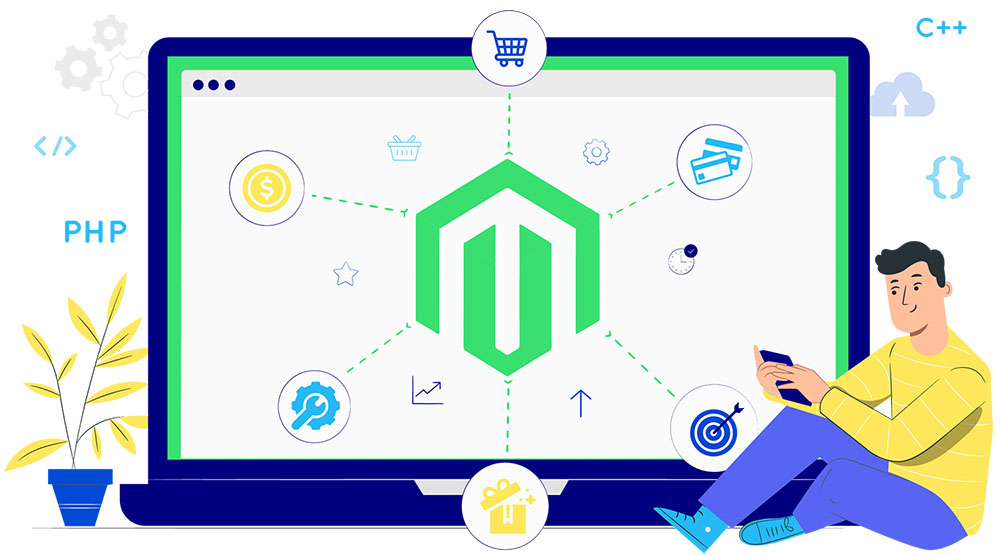How to implement Cookie Consent for GTM & Google Analytics in Magento Under GDPR?
Implement cookie consent for GTM & GA4 in Magento under GDPR. Step-by-step guide using Google Consent Mode v2 to avoid fines and maintain analytics.
Summer Nguyen | 07-14-2023
In an era where businesses strive to streamline operations and stay ahead of the curve, outsourcing has emerged as a robust tool for driving growth and profitability. However, the path to successful outsourcing is paved with numerous factors that demand careful attention. From selecting the right partners to managing risks and maintaining effective communication channels, these factors to consider when outsourcing will help you unlock accomplishments sooner.
This article delves into nine indispensable criteria influencing your outsourcing decision. By embracing these factors as guiding principles, organizations can embark on a transformative outsourcing journey, harnessing global talent, and propelling themselves towards unprecedented success in the dynamic business landscape. At the end of this article, we’ll reveal how to outsource exceptional candidates in software development.
First, let’s dive into the 9 major factors that affect the decision to outsource!
Cost effectiveness is crucial to consider before outsourcing, although not the sole determinant. It is vital to compare the cost of outsourcing with its potential benefits.
The main goal of outsourcing is to reduce operating costs. When evaluating outsourcing agencies, it is essential to thoroughly analyze and measure the quality and quantity of the services they provide.

Additionally, consider their unique strengths and weaknesses to make an informed decision about the cost effectiveness of outsourcing.
Another key factor in outsourcing decisions is assessing the technological capabilities of potential outsourcing vendors. This will help you narrow down and easily find the perfect vendor for your project’s needs and requirements.
When evaluating vendors, you should inquire about the tools and technologies they intend to utilize. Grasping their technological capabilities and how they manage your project will help you to avoid potential risks and unexpected outsourcing experiences.
When it comes to the factors to consider when outsourcing, it is essential to assess the scope of your project and compare it with the capabilities of the outsourcing team. This will help you determine whether the vendor can handle transactional processes such as payroll management, accounting, technical support services, security, and more.
A reliable vendor can effectively manage their time, team working dynamics, and financial resources to deliver optimal strategies and results. By evaluating the vendor’s capacity to handle the scope of work and transactional processes, you can ensure a smooth outsourcing experience and achieve the desired outcomes for your project.
When outsourcing, managing risks is a factor influencing your outsourcing decision. Potential dangers are frequently associated with a loss of control over processes, compromised data security, cultural and communication obstacles, and reliance on the outsourcing vendor.

To mitigate these risks, it is vital to establish a clear contract outlining expectations, deliverables, and safeguards for data protection. Conduct thorough due diligence on potential vendors, considering their track record, reputation, and security measures. Implement robust communication channels and regular performance monitoring. Diversify outsourcing partnerships to minimize dependency on a single vendor.
What’s more, you should maintain contingency plans and have clear exit strategies in place. Proactive risk management strategies help reduce vulnerabilities and ensure a successful outsourcing engagement.
Before embarking on the outsourcing journey, it becomes imperative to carefully contemplate the outsourcing partner’s adaptability and capacity for growth. Adaptability ensures agility in adjusting to evolving business requirements, market dynamics, and emerging technologies.
Meanwhile, capacity for growth guarantees their ability to handle increased workloads and expand services when necessary. Considering these aspects is of paramount importance as they enable efficient resource allocation, cost optimization, and risk mitigation.
To effectively handle this, businesses must conduct thorough assessments of the outsourcing partner’s track record, technological prowess, and ability to handle abrupt surges in demand.
If you contemplate outsourcing, considering the delicate interplay between overseeing operations and establishing clear expectations really matters.
Balancing oversight involves maintaining sufficient control and monitoring without impeding the outsourced team’s autonomy. Concurrently, setting realistic expectations is imperative to avoid disappointment or frustration.
Before outsourcing, establish clear communication channels, define project milestones, and set measurable goals. In addition, conducting thorough research on potential outsourcing partners will ensure that their capabilities align with your expectations.
You can foster a collaborative and productive outsourcing relationship by striking the right balance between oversight and expectations before outsourcing, leading to favorable outcomes.
Expertise and quality assurance also play an essential role in the overall success of a project. Identifying reliable outsourcing vendors with the appropriate competence to offer high-quality solutions is critical.
It is worth mentioning Mageplaza, which provides e-Commerce solutions, including Magento, Shopify, and Shopware, from developing websites, extensions, and optimization services to offering excellent outsource software developers. Several reasons make Magaplaza stand out from other outsourcing providers.
Let’s have a look at the exceptional benefits of hiring Mageplaza developers:
Flexible payment options: Mageplaza allows businesses to choose a payment structure based on their budget and needs.
No Long-Term Contracts: Businesses can partner with Mageplaza developers on a project-by-project basis without any commitment.
Instant Support: Mageplaza developers commit to grappling with unexpected issues and provide efficient solutions timely to ensure the quality and process of the project.
Authorized Access to Source Code: Businesses can customize and modify their platform as needed.
Stringent Non-Disclosure Agreement (NDA) Policies: This ensures the confidentiality of business information, protecting trade secrets and preventing unauthorized disclosure.
Effortless Communication Channels: Mageplaza grasps the importance of effective collaboration and keeps businesses to stay updated on the project’s progress. So you always find it easy to connect and work with Mageplaza developers.

Learn more about Mageplaza services to better understand us and find the ultimate solutions you may be looking for to grow your business sustainably, and what the team accomplished to have a better understanding of us.
Whether you choose Mageplaza developers to partner with your project or any other outsourcing company, it’s essential to consider the level of quality and proficiency to find the right one for your project.
TELL US ABOUT YOUR DEVELOPMENT REQUIREMENTS
You shouldn’t look down on these factors to consider when outsourcing. Effective communication plays a pivotal role in the success of any outsourcing venture. Language barriers can hinder the exchange of information, understanding requirements, and overall collaboration between you and the outsourcing partner.
To alleviate such difficulties, you should resolve linguistic obstacles before outsourcing. To begin, evaluate potential outsourcing partners’ language ability, this will help your team and the vendor to communicate easily and avoid unexpected confusion. Second, create clear communication channels and guidelines, emphasizing the importance of clarity and frequent updates.
Last but not least, hiring translators or language experts will be needed to help with communication and bridge any language barriers. You may improve collaboration and accomplish desired objectives in your outsourcing initiatives by proactively tackling communication and language challenges.
Like other key factors to consider when outsourcing mentioned above, adhering to laws, regulations, and industry standards is essential to avoid legal complications and reputational damage.
You can identify and handle any compliance difficulties by adequately examining the regulatory environment of the target country or region. This includes understanding local laws, data protection regulations, intellectual property rights, and industry-specific requirements.
By proactively grasping regulatory compliance before outsourcing, you can protect your business and keep a pleasant outsourcing experience.

Outsourcing software development has become increasingly prevalent in the modern business landscape. There are various factors to consider when outsourcing, including cost savings, flexibility, and finding a strong and dedicated vendor for outsourcing.
The following proven tips will point out fundamental elements when you evaluate the outsourcing talents of software developers for your projects.
When it comes to evaluating software developer talent, technical competency is paramount. An ideal talent must possess a strong foundation in programming languages and frameworks relevant to your project.
Previous projects are undoubtedly solid evidence of their ability and knowledge of industry best practices.
A developer’s portfolio and past projects provide valuable insights into their capabilities. Look into their previous work to ascertain their projects’ quality, flexibility, and diversity. Thanks to the outsourcing portfolio, you assess their problem-solving skills, great attention to detail, and ability to deliver on time.
Effective communication is paramount for successful outsourcing collaborations. So it is a plus point for outsourcing software developers if they can meet these criteria. It is ideal to look for developers with exceptional written and verbal communication skills.
They should be capable of comprehending your requirements, seeking clarifications when needed, providing regular updates, and addressing concerns promptly.
This factor is worth considering when outsourcing and finding outsourcing talents to partner with your project in the long run. Their proficiency in English or the language of your business will keep the project on track as a result.

No matter talents in software development or any other industry, it is crucial that an outsourcing developer can be able to tackle intricate problems and unexpected troubles. Try to look for critical thinking, logical reasoning, and creativity in their approach to resolving past challenges.
Determining a developer’s problem-solving and analytical abilities will help you find the perfect outsourcing partner to develop your project successfully.
It can be hard to define these elements to consider when hiring a developer. However, it comes from the fact that the tech industry is constantly evolving, necessitating software developers to stay updated with new technologies and frameworks.
If a developer cannot adapt and learn new concepts quickly, he cannot keep a track record of industry trends.
When outsourcing software development, it is significant to consider the developer’s cultural fit and team compatibility with your organization. You should seek developers who share your company culture, work ethics, and working style.
Then remember to evaluate their ability to work effectively in distributed teams, their response to criticism, and, if applicable, their willingness to engage with your in-house engineers.
Outsourcing can be a game-changer for businesses seeking growth, efficiency, and a competitive edge. However, the journey towards successful outsourcing requires careful consideration of key factors that can make or break the venture. By determining the decisive factors to consider when outsourcing, you can confidently navigate the outsourcing landscape and reap its numerous benefits.
The nine key factors presented in this article serve as a compass, guiding your business towards achieving the full potential of outsourcing and fulfilling your projects successfully. Finding the right outsourcing provider is no longer challenging if you know how to start. Hopefully, this article will help you determine where to begin from scratch before outsourcing.